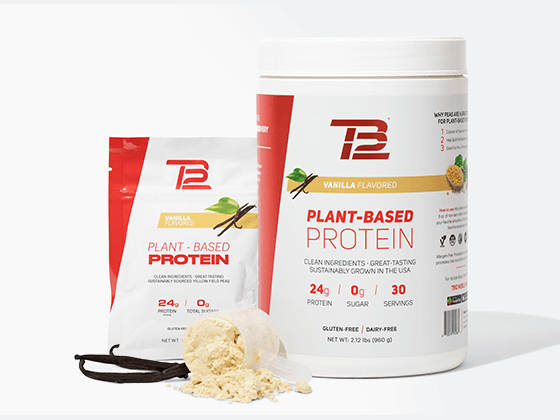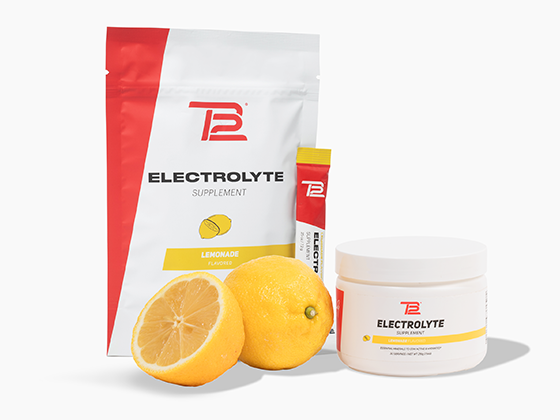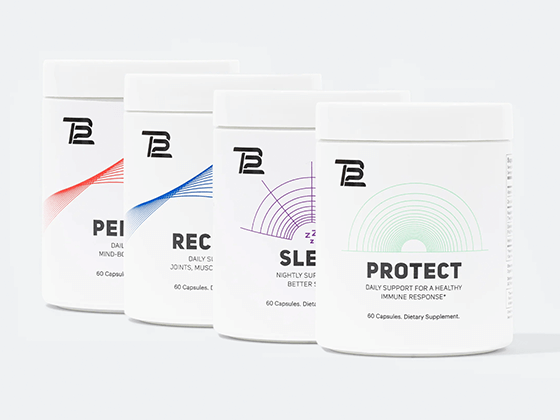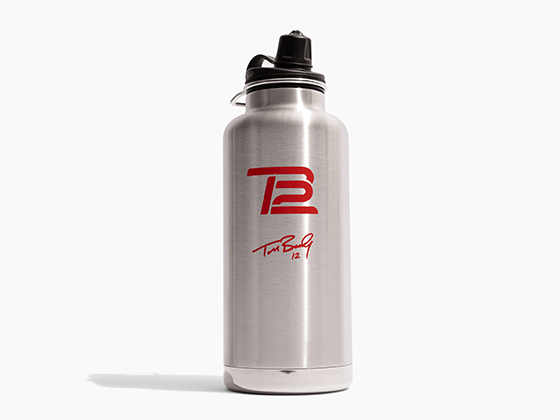WITH ANOTHER football season off to a successful start, interest about Tom Brady’s diet is at an all-time high. People want to know what Tom eats and how it supports the functional strength & and conditioning he uses to improve performance. This question goes beyond professional athletics and applies to anyone who exercises and wants to do what they love for as long as they can. Could clean eating multiply the effectiveness of your exercise?
Nutrition is King; Exercise is Queen:
At TB12, our head sports nutritionist and clinical dietician, Tiffany Chag, has a favorite quote from the late Jack LaLanne (who’s often called the “Godfather” of Modern Fitness). “Nutrition is king, exercise is queen, put them together and you have a kingdom,” LaLanne said. The takeaway from LaLanne’s quote is that an optimal diet and fitness go hand in hand. You can’t have one without the other. When asked about his approach to nutrition, Tom Brady shares a similar point of view. “If you don’t pay attention to what you put inside your body, or if you ignore the connection between good nutrition and healthy muscles, then you’re not allowing yourself to improve your performance.”When it comes to supporting your athletic performance, your exercise program, or your active lifestyle — however you define it — there are five key guidelines: “It doesn’t matter how much exercise you do if you’re not eating the right food and providing your body the right nutrients.” — Tom Brady
THE TOM BRADY DIET & IMPORTANCE OF NUTRIENTS: “It doesn’t matter how much exercise you do if you’re not eating the right food and providing your body the right nutrients,” Tom says. The simple answer to the often-asked question — what is the Tom Brady diet?” — is to eat as much real, organic, and local food as you can. By consistently following this practice, you can make sure your body gets minerals and nutrients it needs for optimal health.
EAT THE RAINBOW: Try to eat a wide variety of real food. Let color be your guide, Tiffany says. “Eat the rainbow.” As Tom puts it, “different foods contain different nutrients and minerals, and no single food can give your body exactly what it needs.” Eating spinach is great, he says. But if the only vegetable making it to your plate is spinach, you’ll be missing out. There are 4 tactics at the core of Tom’s nutrition strategy: Eat real foods that are local, seasonal, and organic. Fill your plate with real food that represents the colors of the rainbow. Shop the periphery of the grocery store for fresh, real food -- and avoid the aisles with packages of processed foods. Enhance the nutrition of your real food with select, quality supplements. Real food is the priority in getting your nutrients; take supplements as a form of insurance.
MAXIMIZE RECOVERY WITH PROTEIN: Adequate daily protein intake is necessary to maintain healthy muscles and tissues and to retain lean muscle mass. Your daily protein requirement depends on your current body composition, activity level, and age. Maintaining lean muscle mass is vital for health and performance. Muscles aren’t just for running and moving things around. Scientists view skeletal muscle as a large organ within the endocrine system. Your muscles are a target of numerous hormones, and also secrete cytokines and other small proteins that affect overall metabolic health. Sufficient protein intake can help buffer the age-related loss of muscle that typically starts in our early 30s. Jack LaLanne was an exceptional example of why nutrition and exercise are invaluable for longevity and retaining lean muscle mass. He celebrated his 74th birthday by swimming one and a half miles while handcuffed and shackled — towing 70 people aboard 70 boats. If you exercise regularly, you need protein in your diet to support post-workout muscle recovery. If you’re training hard three or more times per week, then it’s essential to understand that you’re always recovering. To maximize protein synthesis, shoot to meet or exceed a specific daily protein goal. Ideally, work with a clinical dietician to calculate your daily protein needs, which will be based on your body composition, activity level, and age. Then determine a strategy for meeting that goal consistently through eating real foods and smart supplementation when necessary.If you’re a 130-lb female, for example, you might aim to consume 20 to 30 grams of protein each time you eat, across meals and snacks, which would provide approximately 100 grams of protein daily. Distributing your protein intake across meals improves your rate of absorption and utilization.
MINIMIZE PROCESSED FOODS: If you make a point of eating mostly real food, then you’ll already be minimizing your intake of processed foods. A rigorous landmark National Health Institute (NIH) laboratory study, published in Cell, pinpointed why this is so important. Scientists said they took on the project to cut through the noise of trendy diets: “The perpetual diet wars between factions promoting low-carbohydrate, keto, paleo, high-protein, low-fat, plant-based, vegan, and a seemingly endless list of other diets have led to substantial public confusion and mistrust in nutrition science. While debate rages about the relative merits and demerits of various so-called healthy diets, less attention is paid to the fact that otherwise diverse diet recommendations often share a common piece of advice: avoid ultra-processed foods.” Unlike many nutrition studies that depend on survey data, the NIH study was highly controlled. The subjects, ten male and ten female, resided in the Metabolic Clinical Research Unit at the NIH Clinical Center for a 28-day period where they would eat all of their snacks and meals under clinical supervision. The subjects would also spend one day each week in a metabolic chamber to collect precise energy expenditure measurements to see how processed food was influencing their metabolism.The researchers drew a broad conclusion from the data collected: “People gained weight on the ultra-processed diet and lost weight on the unprocessed diet.” Eliminating excess body fat by minimizing the amount of processed food you consume can upgrade both your health and athletic performance. Decreasing processed foods means reducing the pro-inflammatory foods that drive poor health and promote the gain of excess body fat.
At TB12, these are the categories of pro-inflammatory foods we recommend clients avoid:
- Added sugar
- Refined starches
- Fried foods
- Processed meats
- Alcohol







